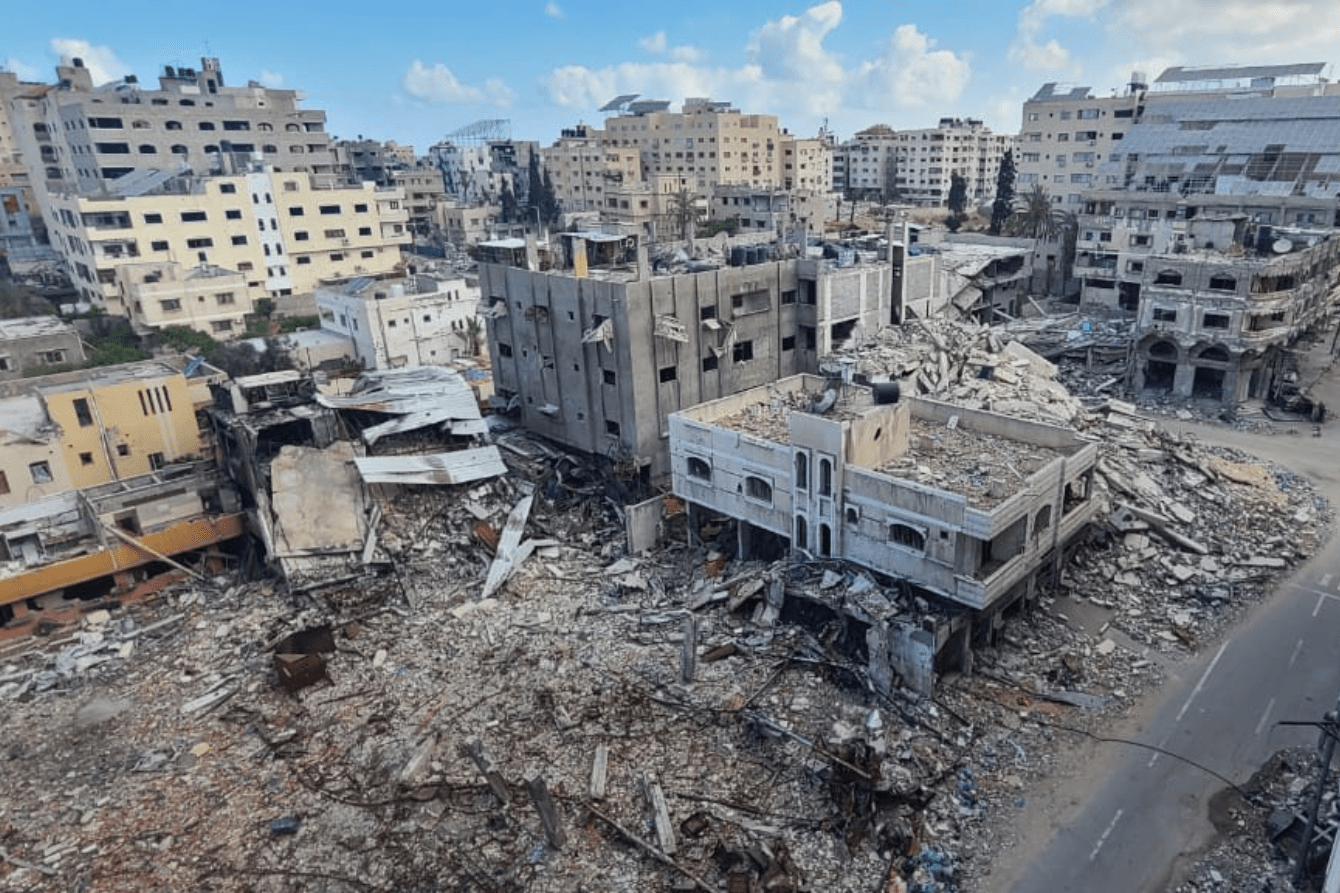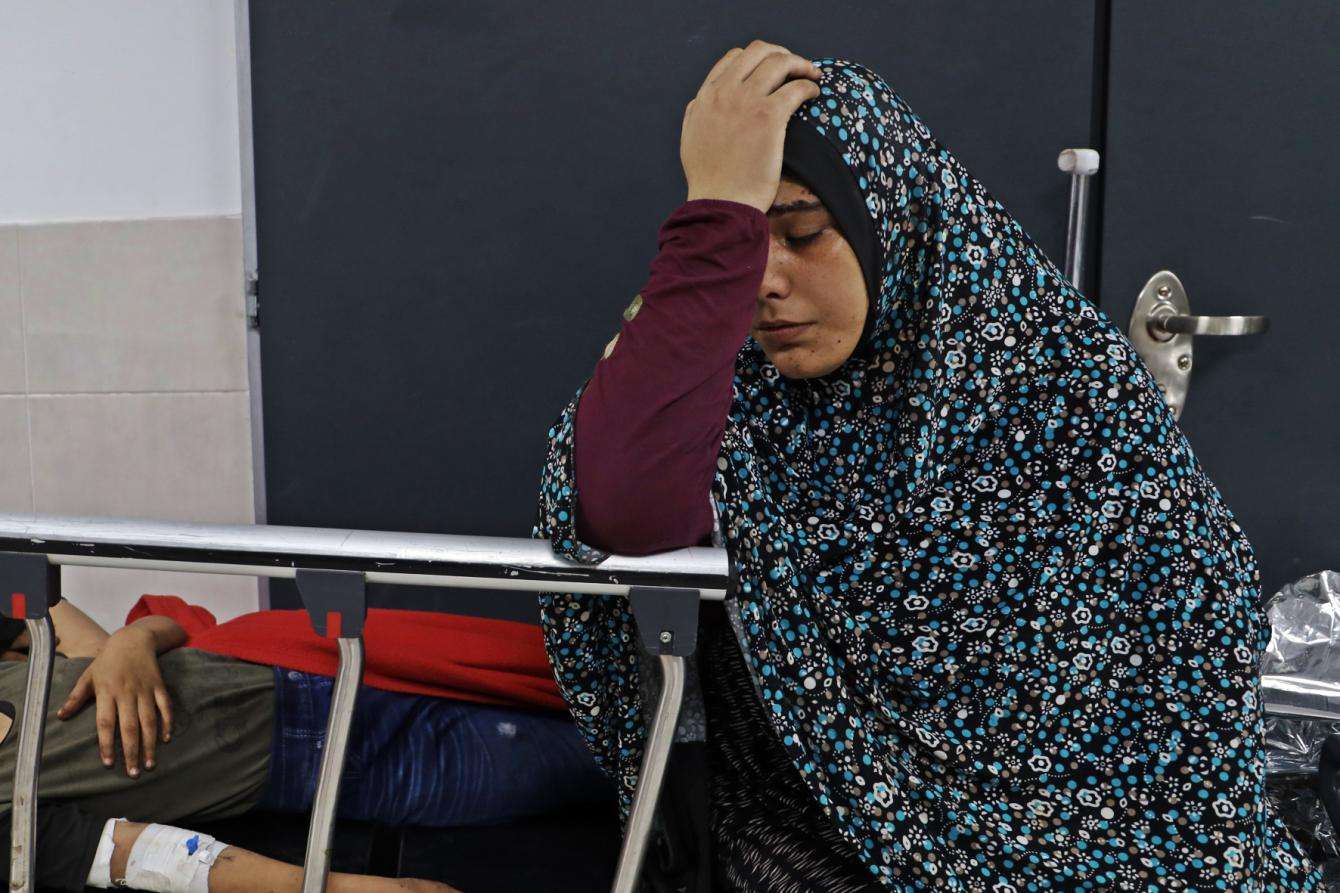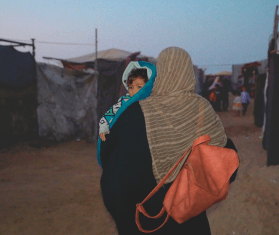One of our team members who recently left Gaza, MSF psychologist Davide Musardo, helped Palestinians address the various mental health symptoms they face while trying to survive in horrific circumstances—relentless bombing by Israeli forces, a siege that has created severe shortages of essential needs like food and water, and widespread destruction of homes, health facilities, and other vital infrastructure. Upon his return, he shares haunting memories of people living through an unbearable reality.
In some sessions, we even had to shout to be heard, to overcome the sound of drones and bombs. And when there was no fighting outside, the background sound was the cries of children in the hospital: children maimed, burned, and orphaned; children having panic attacks because when physical pain triggers psychological wounds, the pain reminds you of the bomb that changed your life forever. Calmer children would draw drones and military jets. War is everywhere in the hospital; the smell of blood is unbearable. This is the image I bring back from Gaza.
I’ve never experienced anything like what I saw in Gaza. There are some traits common to all the patients I saw there. Dark, almost burnt skin because they are exposed to the sun all day. Weight loss because food is scarce. White hair from the stress of months of war. And they all have expressionless faces, faces that illustrate loss, sadness, and depression. The faces of people who have lost everything.

“I miss the little things,” one patient told me. “The pictures of my mother who died years ago, the cup I used to drink coffee with. I miss my routine more than my broken home.”
“I haven't had a glass of fresh water for months,” another patient said. “What kind of life is this?”
As human beings, we are prone to recounting the pain and suffering that we have faced. But how do you tell a story of grief to someone who is going through the same thing as you? That is why one of our priorities is to offer a safe listening space for our patients and for the Palestinian doctors and nurses who have been working non-stop for more than eight months.
Here in Italy, we delete blurry photos or useless shots from our phones. In Gaza, people delete photos of family members who died during the bombings, thinking that not seeing them anymore will ease their suffering.
I have seen people break down when receiving news of another evacuation order. Some people have been displaced as many as 12 times in eight months. “I won't move my tent any more, I might as well die,” I have heard people say.

In Gaza, one survives but the exposure to trauma is constant. Everything is missing, even the idea of a future. For people, the greatest anguish is not of today—the bombs, the fighting, and the mourning—but of the aftermath. There is little confidence about peace and reconstruction, and the children I saw in the hospital showed clear signs of regression.
Although I have left Gaza, it’s as if I am still there. I can still hear the screams of burnt children. We need an immediate and lasting ceasefire. Without that, healing these profound psychological wounds will be impossible.
More on mental health care in Gaza
MSF teams in Gaza are providing mental health care to Palestinians including individual and group therapy, psychoeducation, and psychological first aid. Currently, our mental health services are available in Rafah, Deir al-Balah, and Khan Younis, at Al-Aqsa Hospital, Al-Mawasi Health Post, and Al-Hekker and Khan Younis primary health care centers. Our staff say they are seeing symptoms linked to continuous psychological stress and exhaustion.
Health care providers including doctors, nurses, and emergency responders are also experiencing the loss of their homes and loved ones, with symptoms including anxiety, insomnia, depression, intrusive thoughts, emotional avoidance, and nightmares, all of which can heighten the risk of mental health issues. MSF is trying to provide urgent mental health care to medical staff, but much remains to be implemented to scale up this support.




